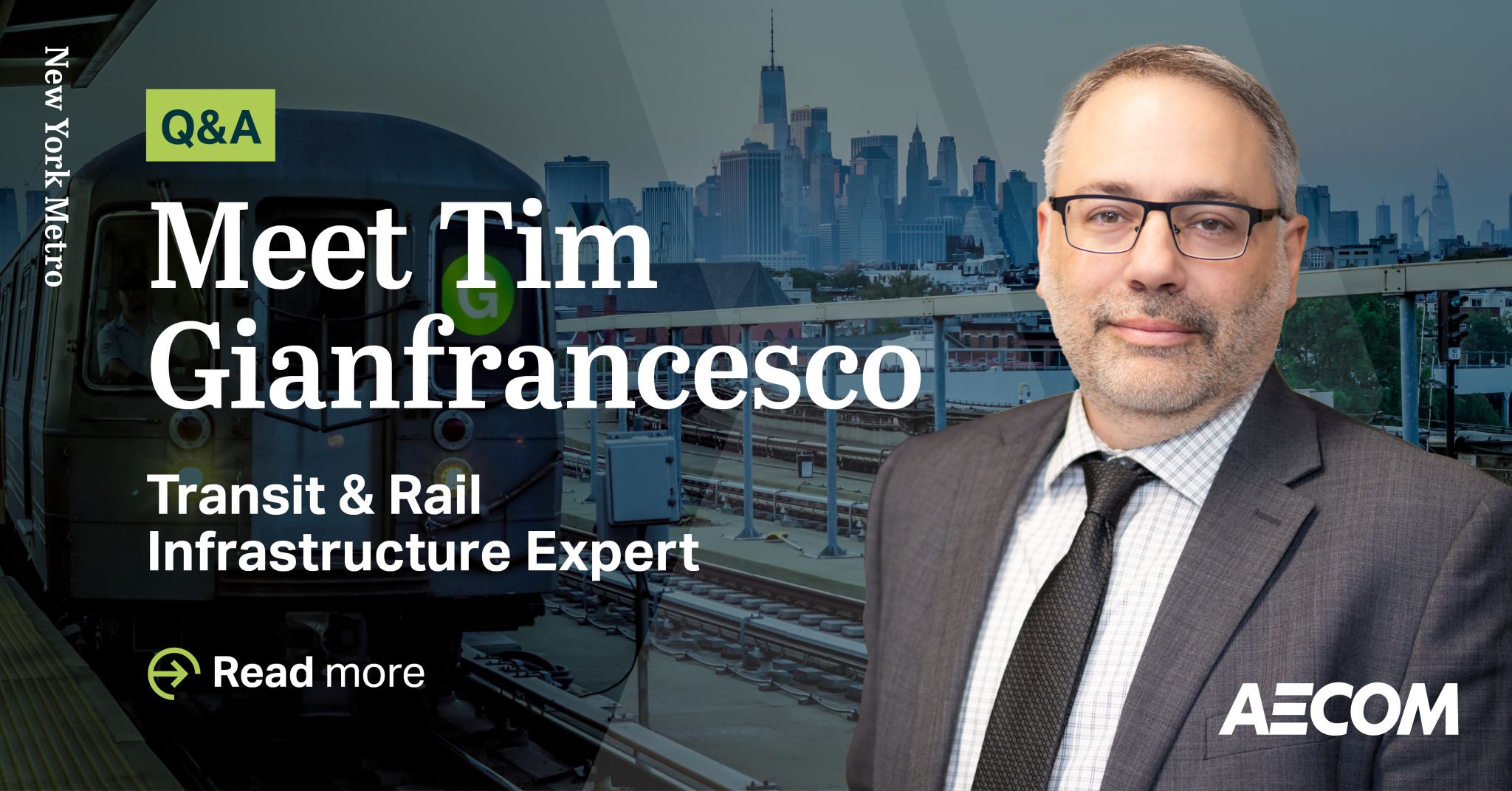Light rail offers exciting opportunities for cities to improve mobility, enhance places and support positive environmental, sustainability and societal outcomes — helping people get where they need to go faster, while providing value to communities by offering new hubs and destinations and, ultimately, creating opportunities for everyone.
When it comes to iconic, innovative transit projects around the world, AECOM leads the industry. Our transit professionals are involved in every aspect of LRT delivery, from program management to planning and conceptual engineering, through final design, construction management and startup of revenue service.
Our expertise includes track, systems, passenger concourses and stations, maintenance and storage facilities, bridges and structures, buildings, rolling stock, utility crossings, and operations and maintenance planning.
We’ve delivered hundreds of LRT projects under a variety of models, from traditional design-bid-build to alternative financing and delivery, such as design-build, progressive design-build, public-private partnerships, alliancing and design-build-operate-maintain.
Featured projects
What we do
Advisory services
- Program management
- Feasibility studies
- Business cases
- Pedestrian modelling
- Transport modelling
- Rail operations modelling
- Staged investment
- Sustainable solution development
- Technical optioneering
- Constructability reviews
- Technical advisor (engineering, environmental and consultation)
- LRT stop and station design
- Environmental, social and governance (ESG)
- Cost estimation
- Funding support
Detailed design phase services
- Track and civil
- Power and electrification
- Maintenance facility and depot
- Landscape architecture
- Stops and stations
- Station areas
- Noise and vibration
- Digital generative design
- Sustainability and green engineering
- Complete streets (roadways, bikeways, shared use paths, sidewalks)
- Structures design (bridges, tunnels, stops/stations)
- Systems engineering and safety assurance
- Crime prevention through environmental design (CPTED)
- Information and communication technologies (ICT)
